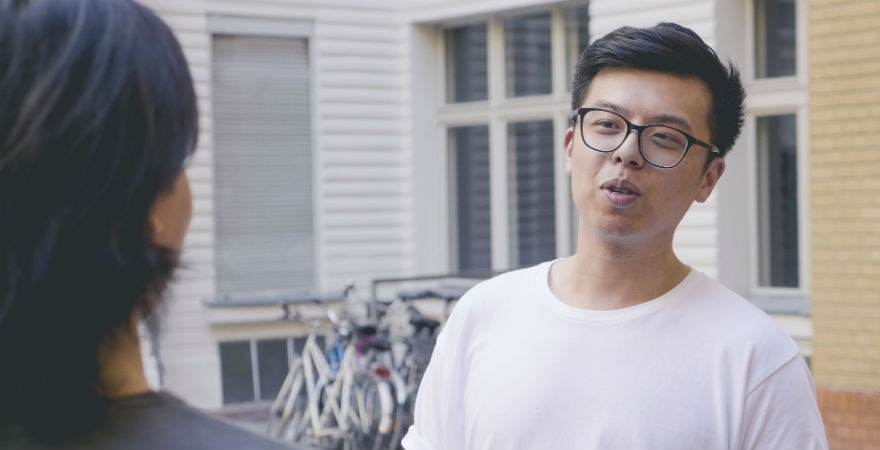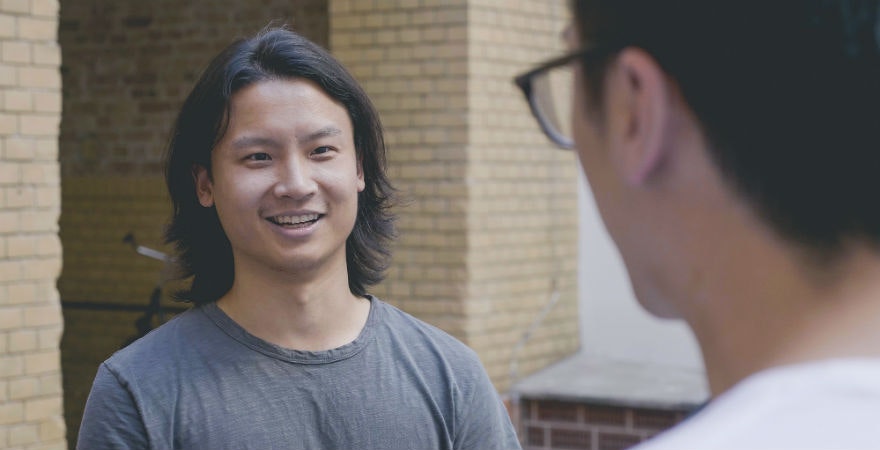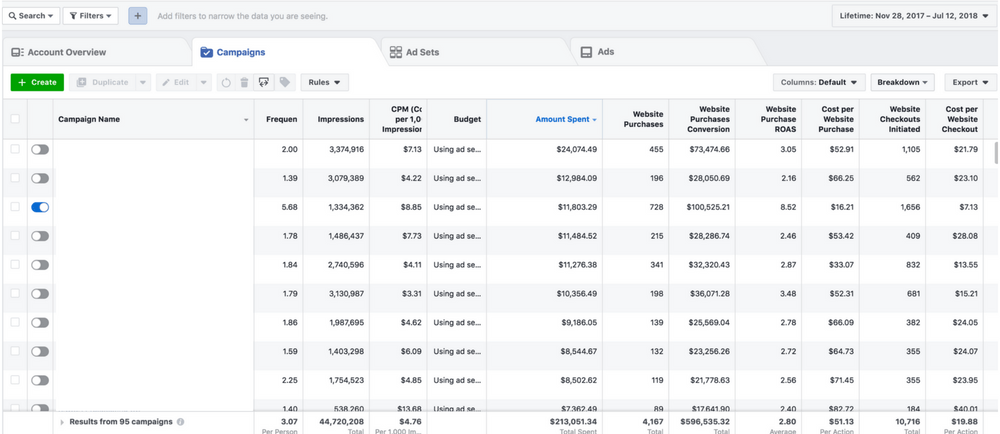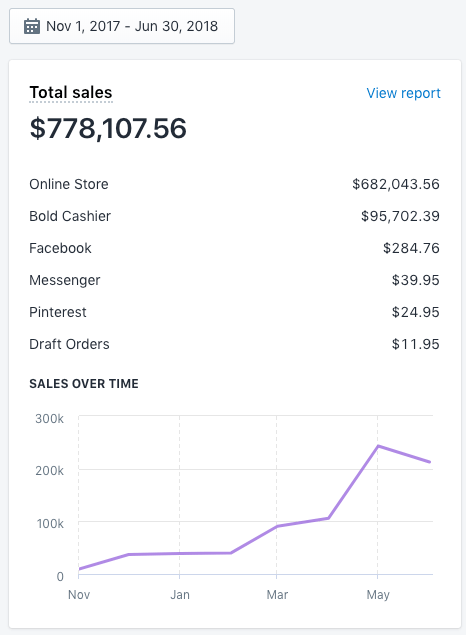“I never thought it would turn out like this,” says Jacky.
Jacky and Albert started their home decor store simply as an experiment, a case study to help get them more clients for their marketing consultant work. And now? Their little experiment has taken over, reshaping their lives, their jobs, and their future.
The rapid success of their business has catapulted them into the realm of ecommerce all stars in just eight months. They’ve generated over $700,000 in revenue, and are on track to crack $1 million in less than a year. Not bad for something they thought they’d just try out.




Moving to the Other Side of the World? Sure, Why Not?
Both originally from Vancouver and now living in Berlin, Jacky Chou and Albert Liu have always been the kind of people to take a chance on something new to see how it plays out.
Even their move across the world was the result of them asking themselves, “Why not?”
→ Click Here to Launch Your Online Business with Shopify
Back in Vancouver, Jacky was studying electrical engineering, and on track to “settle for a mediocre job,” he says. Electrical engineering didn’t feel like the right fit for him, and it was a grind trying to make it through the remainder of his degree.
“I wasn’t miserable,” he says, “but I had no direction.”
Then a conversation with an old friend, who had recently moved to Berlin, sparked the idea to try and make it in Europe. Soon after he landed an internship at a mobile marketing agency in Berlin, and he was packing his bags and boarding a plane in less than two weeks. Going against the advice of his parents, and with only one person he knew in the whole city, Jacky decided to take a chance and see how it worked out. Just because.
Albert followed soon after. He’d heard stories of the young Club Mate-fuelled tech startup scene that was bubbling up in the city, and got a tip from Jacky about a job opening. Albert knew that life in Vancouver would be great, but it would be slow, and for someone who wanted to be on the cutting edge of the tech scene, the opportunities just weren’t there. So he took a chance, hugged his friends and family goodbye, and boarded a plane over to Berlin.
Although the two had known each other for years – they attended the same high school back in Vancouver – they were never friends. But now, as two fresh-faced Vancouverites in the German capital, they quickly became close.
After his internship, Jacky took up different roles managing traffic acquisition and growth for online startups. Albert landed a full-time gig managing Facebook advertising at an online home decor brand.
But like many entrepreneurs, both Jacky and Albert are the kind of people to never be satisfied with just doing well. So it wasn’t long until they became restless in their jobs. So, they decided to ditch their full-time jobs in pursuit of their own marketing consulting businesses.
But the next bit, nobody could have anticipated.
Early Experiences With Entrepreneurship
Jacky and Albert had tried their hand at ecommerce before. During university, to save him from the boredom of the electrical engineering degree, Jacky started an online store.
He sold men’s fashion items and watches, through the dropshipping business model. This model, which allowed him to sell products online without needing to hold any inventory, offered him a low-cost, low-risk way to run his business.
When Albert and Jacky became close in Berlin, they decided to team up. He knew Albert had experience with Facebook advertising and wanted another business partner to help out and bounce ideas off.
But they were new to this, and growing a business from the ground up is time-consuming and complicated. For every order they received, they’d manually add it to a spreadsheet, then copy down the address details of each customer, one by one. The process could take them up to six hours per day of slow and tedious work.
So while the experience taught them a lot, ultimately, it didn’t work out.
“Back then, we didn’t have such a good idea about how to make a store profitable and scale it up. I don’t think we broke even, I think we were a little bit under that,” says Albert.
So they pulled the plug on the store. They’d just started their marketing consulting businesses anyway, and it was time to focus on this instead.
But then, Albert came to Jacky with an idea.

The Idea That Changed Everything
They’d been working hard on their marketing consulting businesses, but attracting clients was difficult. Jacky recalls how at the beginning, he couldn’t afford to be picky. He’d accept any work that came his way. He’d say yes even when he knew they weren’t paying him enough. He’d say yes even when he knew the client would be difficult and demanding. It was exhausting.
They needed a way to draw in better clients, and to convince them that they had the skills to market their businesses.
It was Albert that first thought back to their old dropshipping ecommerce store. “I think it’s the perfect business model for digital marketers like ourselves,” he says.
The dropshipping model meant they didn’t need to worry about investing money in inventory and a fulfillment service, as their supplier would hold onto products and ship them directly to their customers. With this out of the way, they knew they could focus their energy on marketing. Then with a successful store to show the results would speak for themselves, helping them to hook in better, higher-paying clients.
Instead of revamping their menswear business, they went for an area they had more expertise in.
“I came to Jacky with an idea for another store in the home decor niche,” Albert says.
Albert was already familiar with the industry after spending nine months working at an online home decor brand. He knew what kind of products people liked, and he knew who wanted to buy them – tended to be avid online shoppers who were “typically much more impulse buyers,” he says.
He spotted a dropshipping store for sale on Shopify Exchange that had the exact look they were going for. Excited, he contacted the owner about buying the store. But he was too late. The store was sold.
But the owner struck them a deal. They would pay him to help them out by building them a custom store, matched exactly to the style they were looking for. He chose their Shopify theme, set them up with striking imagery for the home page, and helped them design their logo. Then he handed over the complete package to Jacky and Albert.
Next, they made a plan.
They knew that it was going to take some money to get this thing off the ground. They pooled $5,000 of their money and set it aside as “burn money.”
They would pour the money into testing their concept on Facebook. They’d run test after test, with different products and different audiences. Then they’d follow the data.
Whichever products proved popular they’d stick with, and axe the rest.
They knew going in that there was a chance this could fail. It was possible for them to lose all their money. And they had to be okay with that.
“What we set out to do was to give ourselves $5,000 total in ad spend. So we said to each other that we’re going to burn that $5,000, and if we lose that, so be it,” Jacky recalls.
They began to search for products that they thought would be the right fit. They needed to match their store’s style, and needed to be interesting and unique enough for someone to be intrigued to buy from this unknown brand. After compiling a shortlist of products and importing them from their suppliers using AliExpress, they launched into advertising.
“Initially it was a lot of testing, we had a lot of different product categories,” said Albert. “We lost a lot of our advertising budget initially because we had to extensively test which product category people liked.”
They tried testing trending products like inflatable pool swans, stylish home decor like wall clocks, and even small accessories like keychains.
They were getting sales, sure, but they were paying for it. “We were spending $100 making $5 worth of sales,” says Jacky.
And they were burning through their money fast. They were only two weeks into their experiment, but they’d already churned through over $3,000 of their money. They were going further and further into the red.
But then, they noticed that something was happening. One of the latest products they’d added for testing was getting sales. Then more sales. Then a lot more sales.
It was just before Black Friday, and people were in a shopping spirit.
Over the weekend, they watched the sales go up and up. They watched as their “burn money” quickly replenish itself.
Just over two weeks in, they were back on top. They’d made all their advertising money back, and were now making a profit.
Albert remembers what it felt like: “It was a moment that we realized that this could actually work!”
Albert shares what he thinks made this product campaign a winner. “It’s got really attractive images. Professionally shot images that we found on AliExpress. It wasn’t too crazy, we didn’t do anything too creative with it, I think it was just the product that drew people in. The campaign itself was just an Instagram news feed carousel ad. So people would scroll through the colorways, and think it was nice and buy it.”
The product struck a chord with their audience. It perfectly fit the aesthetic of their fans, as well as being useful and unique-looking. It was the perfect combination for a winning dropshipping product.

It costs money to make money, you know? Around 25-33% of their store’s revenue goes back into advertising, mostly on Facebook and Instagram.
Going Up and Up!
Since finding a winner, things have gone up and up.
“We were able to use the profits generated from that to scale up the business and test out new product categories. And now we have like two or three that are consistently profitable,” Albert says.
And the growth hasn’t stopped.
“I think we tripled from November to December, and then from January to now [July] we’ve nearly tripled again. And then we hit $250k last month, that was nuts!” says Jacky.

May 2018 was their most successful month so far, generating $250,000 in sales.
How Can You Recreate Their Success?
When it comes to trying to replicate the success of Jacky and Albert, they agree that it comes down to a cold hard fact. You’re going to need to invest time and money.
With their background in digital marketing, they were able to get a jumpstart on understanding how to market to an audience online. But with a huge amount of resources available to you, even a complete newbie can learn the foundations of marketing quickly.
Albert suggests that spending time understanding Facebook advertising will pay off in the long run. “I think it’s pretty important before you go into dropshipping to learn about the basics of Facebook advertising and what all the technical terms mean. You shouldn’t be throwing money at it without knowing anything about it.”
Jacky thinks that setting aside enough money for a solid startup budget is key. “I can see that a lot of people are afraid to spend money. If they spend $100 and they don’t make any money from it, it seriously hurts them. I’d say go to work, and save up some savings, then set some money aside for testing. Then it can be money that you can be detached to. Don’t invest money that you can’t afford to lose. Once you get to that point, then you can look at things from a different angle.”
So, What’s Next?
With profits consistently rolling in, Jacky and Albert have been able to focus on building a business that is sustainable and high quality. They’ve invested in two other full-time virtual assistants who are in charge of fulfillment and customer service. They’re scrutinizing their suppliers and products to ensure that they are high quality.
“One of the most important things is making sure the quality of our products is good,” says Albert. “For a supplier, reliability and product quality is the most important. We don’t mind paying a little extra for the product if we can have a guarantee that there’s not going to be issues.”
As it grew, Albert shifted his time away from the consulting business towards managing the store.
“When we were at the point that we hit six figures it was like, ‘Okay I need to dedicate more time to this. This could be a big thing!’” he says.
The success of the business has had unexpected benefits for Jacky. He’s still running his consulting business, but the financial freedom the store has given him means he’s able to turn away certain clients. “Now I can be more selective with my clients. Usually, the lower-paid ones are the worst to work with, so I’ve been able to drop most of them. It’s done wonders for my mental health,” he says.
They’ve got big plans for the future too, and are set on expanding their offering to take on some of the world’s biggest home decor retailers. “In five years if we’re not going after Wayfair then we’re doing something wrong,” says Jacky.
Photography: Roberto Cortese.
Kick start your own ecommerce career. Sign up for Shopify now.



Want to Learn More?
- How to Turn a Side-Hustle Into an Adventure Around the World
- An Inside Look at the Mindset of a Successful Entrepreneur
- Dropshipping 101: Ecommerce Without Inventory
- Shopify Dropshipping FAQ
